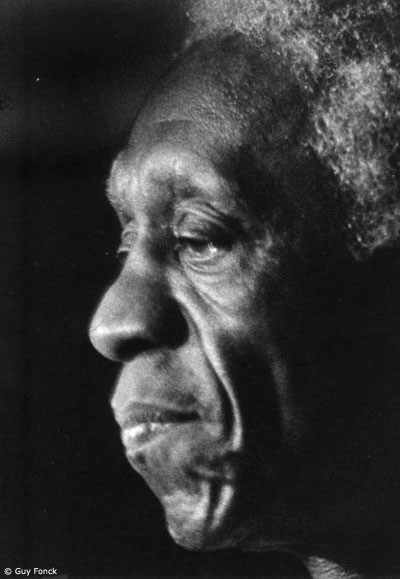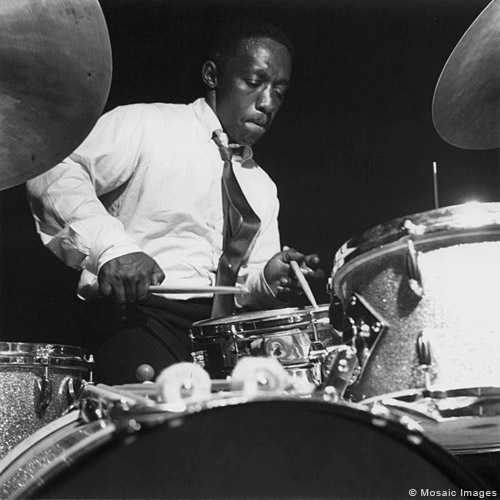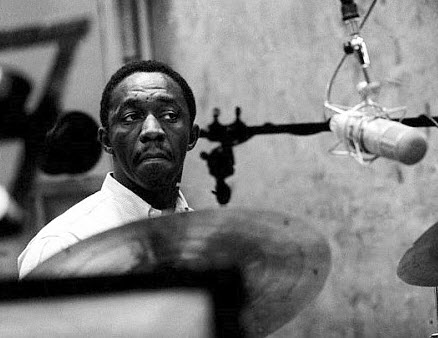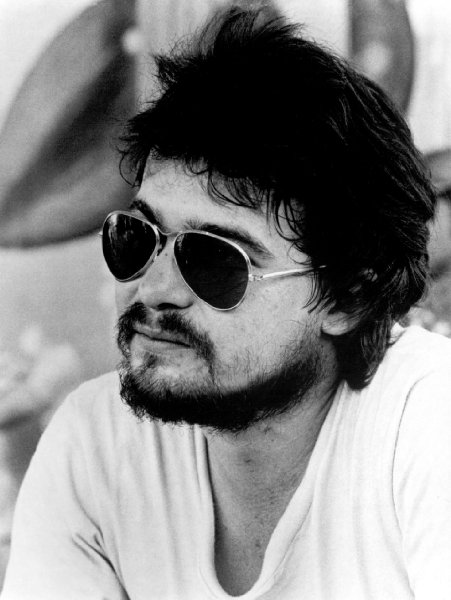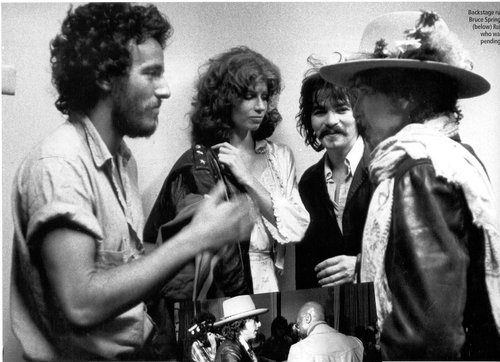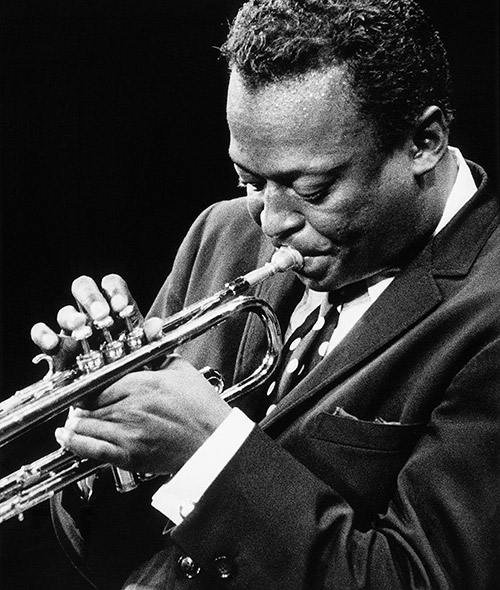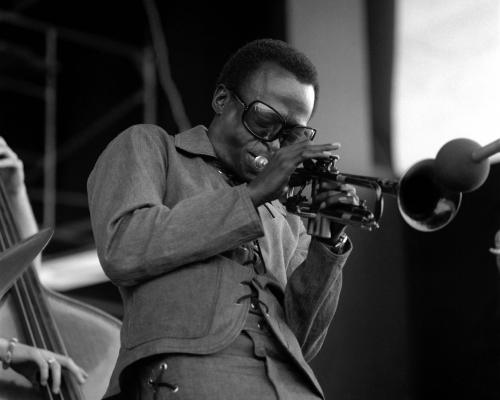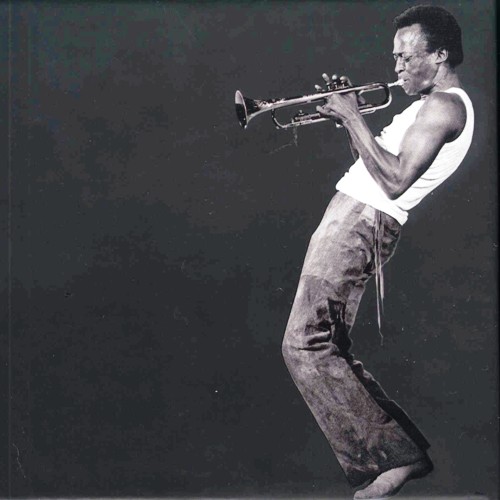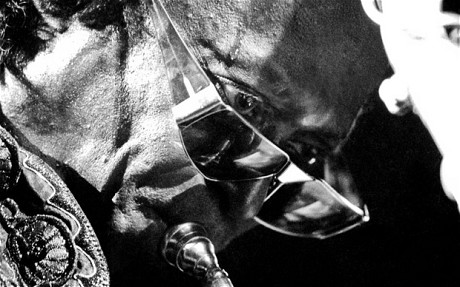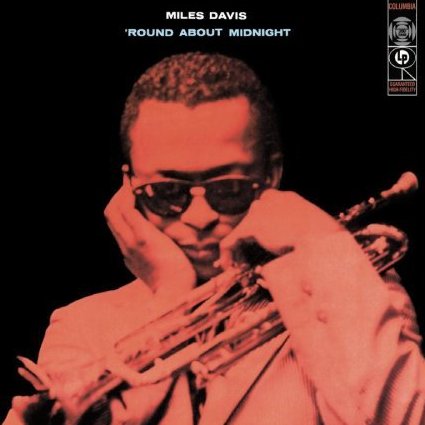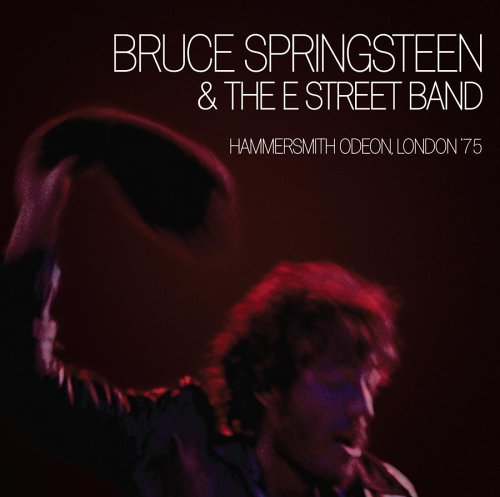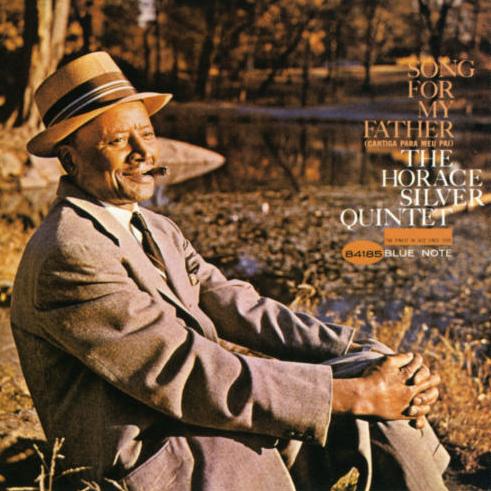Music washes away the dust of every day life.
~Art BlakeyYou can’t seperate modern jazz from rock or from rhythm and blues – you can’t seperate it. Because that’s where it all started, and that’s where it all come from – that’s where I learned to keep rhythm – in church.
~Art Blakey
From Wikipedia:
| Birth name | Arthur Blakey |
|---|---|
| Also known as | Abdullah Ibn Buhaina |
| Born | October 11, 1919 Pittsburgh, Pennsylvania United States |
| Died | October 16, 1990 (aged 71) New York City, New York, U.S. |
| Genres | Hard bop, bebop |
| Occupations | Drummer, bandleader |
| Instruments | Drums, percussion |
| Years active | 1942–1990 |
| Labels | Blue Note |
| Associated acts | Art Blakey & the Jazz Messengers, Art Blakey Quartet, Art Blakey Quintet, Art Blakey & the Afrocuban Boys |
| Website | www.artblakey.com |
Arthur “Art” Blakey (October 11, 1919 – October 16, 1990), known later as Abdullah Ibn Buhaina, was an American Grammy Award-winning jazz drummer and bandleader.
Along with Kenny Clarke and Max Roach, he was one of the inventors of the modern bebop style of drumming. He is known as a powerful musician and a vital groover; his brand of bluesy, funky hard bop was and continues to be profoundly influential on mainstream jazz. For more than 30 years his band, Art Blakey and the Jazz Messengers, included many young musicians who went on to become prominent names in jazz. The band’s legacy is thus not only known for the music it produced, but as a proving ground for several generations of jazz musicians; Blakey’s groups are matched only by those of Miles Davis in this regard.
Blakey was inducted into the Jazz Hall of Fame (in 1982), the Grammy Hall of Fame (in 2001), and was awarded the Grammy Lifetime Achievement Award in 2005.
From allmusic.com – Chris Kelsey:
In the ’60s, when John Coltrane and Ornette Coleman were defining the concept of a jazz avant-garde, few knowledgeable observers would have guessed that in another 30 years the music’s mainstream would virtually bypass their innovations, in favor of the hard bop style that free jazz had apparently supplanted. As it turned out, many listeners who had come to love jazz as a sophisticated manifestation of popular music were unable to accept the extreme esotericism of the avant-garde; their tastes were rooted in the core elements of “swing” and “blues,” characteristics found in abundance in the music of the Jazz Messengers, the quintessential hard bop ensemble led by drummer Art Blakey. In the ’60s, ’70s, and ’80s, when artists on the cutting edge were attempting to transform the music, Blakey continued to play in more or less the same bag he had since the ’40s, when his cohorts included the likes of Charlie Parker,Miles Davis, and Fats Navarro. By the ’80s, the evolving mainstream consensus had reached a point of overwhelming approval in regard to hard bop: this is what jazz is, and Art Blakey — as its longest-lived and most eloquent exponent — was its master. … read more over @ allmusic.com
Art Blakey & The Jazz Messengers Moanin’ – Live In Belgium 1958:
Art blakey’s Jazz Messengers – Dat Dere (1961):
Album of the day – Moanin’ (1958):

From allmusic.com – Michael G. Nastos:
Moanin’ includes some of the greatest music Blakey produced in the studio with arguably his very best band. There are three tracks that are immortal and will always stand the test of time. The title selection is a pure tuneful melody stewed in a bluesy shuffle penned by pianist Bobby Timmons, while tenor saxophonist Benny Golson‘s classy, slowed “Along Came Betty” and the static, militaristic “Blues March” will always have a home in the repertoire of every student or professional jazz band. “Are You Real?” has the most subtle of melody lines, and “Drum Thunder Suite” has Blakey‘s quick blasting tom-tom-based rudiments reigning on high as the horns sigh, leading to hard bop. “Come Rain or Come Shine” is the piece that commands the most attention, a highly modified, lilting arrangement where the accompanying staggered, staccato rhythms contrast the light-hearted refrains. Certainly a complete and wholly satisfying album, Moanin’ ranks with the very best of Blakey and what modern jazz offered in the late ’50s and beyond.
Other October 11:
Continue reading Today: The late Art Blakey was born in 1919 – 93 years ago

